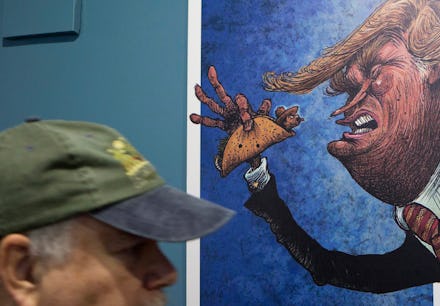President-elect Donald Trump's border wall may just be a fence

Republican President-elect Donald Trump's much-vaunted border wall — which Trump has promised will be between 30 and 65 feet tall, despite the enormous difficulties that would be involved in building such a barrier — may end up being more of a fence.
In an interview with CBS' 60 Minutes, Trump said that whether certain sections of the barrier end up being a "wall" or a "fence" is negotiable, and "for certain areas I would" accept a fence, Reuters reported.
"But certain areas, a wall is more appropriate," Trump added. "I'm very good at this, it's called construction, there could be some fencing."
The U.S. has already constructed over 650 miles of fencing covering nearly a third of the 1,954 mile border with Mexico at a cost of over $7 billion. Immigration experts say the barriers are easy to breach and difficult to maintain, as well as trivial to bypass entirely with techniques like tunneling. (A wall, however, may not be much more secure.)
But as Trump walked back his promises on the wall, he also promised to deport up to three million undocumented immigrants who "are criminal and have criminal records, gang members, drug dealers," USA Today reported.
He added, "After the border is secure and after everything gets normalized, we're going to make a determination on the people that they're talking about who are terrific people."
While Trump said the initial two to three million deported would be criminals, USA Today wrote immigration experts believe the total number of criminal undocumented immigrants is much lower. Immigrants, including undocumented ones, are in fact less likely to commit violent crimes or land in jail.
As Vox recently noted, dramatically increasing deportations would be a relatively easy task for the Trump administration, given the federal government's pre-existing immigration enforcement infrastructure and the president's ability to exercise (or more importantly, not) "prosecutorial discretion" in who and how many get deported. Trump could also ramp up partnerships with local police forces to arrest and deport large numbers of undocumented immigrants.